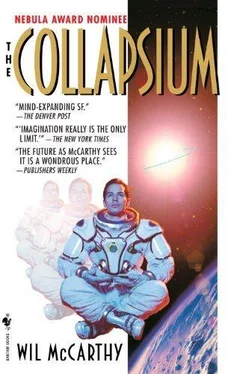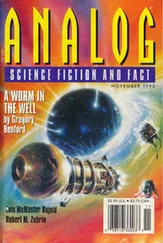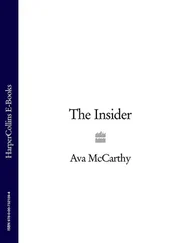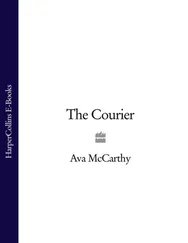A speaker emerged.
“Bruno, stand back, please. I’m going to melt the access cylinder’s hull back into place.”
Indeed, the ship’s hull gleamed through a rough opening, metal and wellstone melted and folded and wrinkled away from what had, until moments ago, been the hatch. Now the edges of that hole began to sizzle and pop, and slowly the pulled-back ridges of material began to smooth inward again, covering up the impervium hull, pushing it back and away into the vacuum of Mercury’s surface.
“Muddy!” Bruno shouted. “You open this hatch immediately! What do you think you’re doing?”
“Making amends,” Muddy answered cryptically.
“Open the hatch, Muddy! You can’t make off with this ship; it isn’t right .”
“Make off?” Muddy sounded hurt. “I’m taking her into the photosphere, Bruno. I’m going after those fragments.”
Bruno’s skin went cold. “You’re what? Muddy, they’ll be inside the sun by the time you get to them.”
The loudspeaker was not a face; Bruno could read no emotion there. “Grapples can reach inside the sun, yes?” Muddy said. “At close range? I’ll convert the fragments to hy-percollapsites and simply pull them out.”
“By pulling yourself in,” Bruno said, finally understanding. His voice was soft, disbelieving, probably not easy to hear over the sizzling of wellstone reactions. “You’ll be killed. I don’t see how you could possibly survive.”
“Nor I,” Muddy agreed, and Bruno thought his voice sounded, if not exactly happy , then at least vindicated. “I was created for one purpose, Bruno: to prove that you could be broken, that you could be cowardly and contemptible and weak. I carried the proof of myself right to you, like the craven that I was. But now, Bruno, I’m spent, and therefore free to define a new purpose. Let me show you that you can also be brave .”
“Muddy, my God. At least leave a copy behind.”
There was a pause, and then Muddy’s voice said, “I have, sir. It’s you.”
Before Bruno could reply, before he could conceive of a reply, the crackling edges of the wellstone reaction closed in over the loudspeaker, first a ring around it and then a circular wave splashing in across it and finally a smooth, blank cylinder wall. The sizzling stopped.
A rocket would have made some sound, even in vacuum, as its hot exhaust gases expanded and flowed across the landscape, impinging on the surface of the access port. But a grappleship made no sound at all. Through the little window in the airlock, Bruno could see a shadow pass briefly over the landscape, and that was all.
He stood there a long time, with his nose pressed up against the hot glass.
Chapter Twenty-Four
in which an historic tally is counted
They watched on the sensors of Marlon’s desk as Sabadell-Andorra raced to the scene of the collapsium’s photopause penetration. As promised, the fragments shrank and vanished from view, and even Bruno had a hard time identifying their gravitational signatures as the tug of Sabadell-Andorra’s grapples flung them away from solar space. And then there was the gravitational signature of the ship itself, of the ertial shield crowning her bow; they watched this plunge headlong into the photosphere’s dense plasma, where even impervium could expect a lifetime measured in fractions of a second.
Once the ship was burned away, of course, there was no mass for the ertial shield to drag around behind it. Weightless, massless, all but inertialess, it caught a whiff of the solar convections, the outward currents in the plasma that, higher up in the photosphere, gave rise to the solar wind. It caught this breeze, yes, right at the very source, and was flicked at once toward eternity.
Bruno lost interest after that. There were a lot of tearful thanks, a lot of hugs and shoulder thumps, a lot of shaken hands. Cheng Shiao came back from the dead to congratulate Bruno on his excellent work and to offer up his deepest thanks for saving all of their lives, in so many ways. But Bruno could barely pay attention to the words, and in time his friends withdrew, realizing how deep his grief must be. The loss of his home, his ship, his brother, were as nothing to the loss of his Queen. They felt that loss—that yawning, hollow emptiness—and they had far less to lose of her than Bruno did.
They left him alone there in the study, alone not only with his grief but with his guilt , because he knew—as Muddy must surely have known—that the Queendom itself barely existed for him, except as an interest and possession of Tamra’s. He’d have let it fall, let the sun explode and the Earth run with fire, let the Iscog scatter to the far corners of the galaxy, if only he could have saved her.
Brave? He was the worst sort of coward, the worst sort of villain, because he was willing to hide behind a mask of heroism. Were all heroes that way, inside their secret selves? What an empty thought.
Time passed; he slept on the cot, awoke, ate from the fax and then slept again. In time, Deliah came to him and announced that they’d gotten Marlon’s spaceship working and were ready to go. Back to Earth, she said, and only looked puzzled when he told her he didn’t deserve to set foot there.
An argument ensued; they tried, both one by one and as a gang, to persuade him to board the ship with them. But he refused to be persuaded, and refused to be persuaded, and finally they concluded his grief had consumed all else within him—which was certainly true. They wondered aloud whether he could be trusted to remain here alone without harming himself. They extracted a promise from him regarding this, and in the end they simply had to trust him with it. He did have some experience in living alone, after all.
And so they departed, and Bruno remained behind. History does not record what he did there, as Mercury’s long day collapsed slowly into afternoon, as the sun set and darkness fell and the ground gave up its heat. Mercury’s night is among the coldest in the solar system; perhaps it matched his mood. Perhaps he donned a spacesuit and spent long hours walking under the stars’ cold light. Perhaps he remained indoors, and meditated, or slept.
Did his heart begin to turn, when the sun reached its nadir at midnight? Did it turn before dawn, when the night had reached its coldest and the sun’s stealthy advance upon the horizon had begun, finally, to heat the ground again?
This much is known: that ten weeks after the Solar Rescue, when The Honorable Helen Beckart, Regent of the Crown and Judge Adjudicator of the House of Parliament, arrived at Mercury with her entourage and bodyguards, they found a de Towaji more at peace than the one Vivian Rajmon had tearfully described to them.
“Declarant-Philander,” Beckart said to him upon their meeting, inclining her head deeply. She wore a black cassock and frock, a black tricorned hat, black stockings and shoes. Fortunately, her skin was pale, or she’d have disappeared entirely.
“Judge Adjudicator,” Bruno returned, rising from his cot to bow. “I trust your landing was pleasant.”
“It was,” she said. “Your house’s instructions were most helpful.”
Bruno had come to somewhat better terms with the universe, in his time alone here. His shame and guilt were a burden not so easily dispelled, but he was slowly forgiving himself for them, and for the events that had caused them. He forgave Tamra, too, for editing herself out of the equation like that. She’d had no way of knowing help was on the way; even Bruno hadn’t known that for sure. To err was human, yes?
Bruno had suffered from impure thoughts, from callousness, from introversion, and though his behavior might appear irreproachable, still he knew the difference. Tamra’s sin was to think and feel too purely, and to act in haste. Did the two sins balance out? Who could say? They were all just children, after all, the whole of humanity, exploring only the very earliest beginnings of their long, long lives.
Читать дальше












